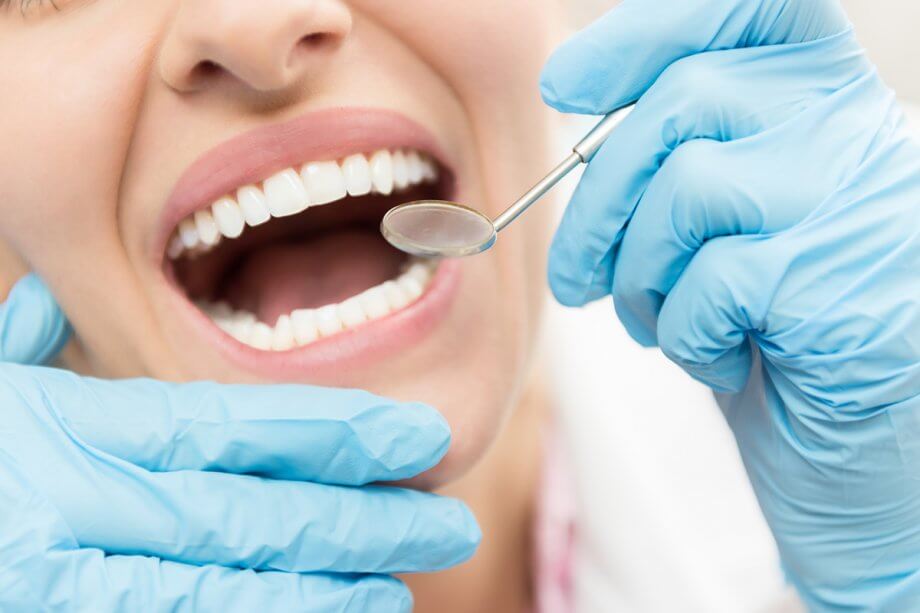Do you experience dry mouth? Dry mouth is a condition affecting the salivary glands that causes a lack of saliva. The scientific name is xerostomia, and it affects somewhere between 10% and 20% of the population. There are many causes, effects, and treatment options for those who suffer from dry mouth. Here’s what you need to know.
Symptoms of Dry Mouth
Dry mouth can cause a variety of symptoms besides the obvious dryness, such as:
- Extreme thirst. Dry mouth can make you feel thirsty a lot of the time.
- Sore throat. The lack of saliva will also make your throat dry and potentially sore.
- Cracked lips. Your lips may also suffer from dryness due to lack of saliva.
- Mouth sores. Sores may develop due to irritation from lack of saliva.
- Sticky feeling in the mouth. Your mouth may feel sticky, like your tongue is sticking to the roof of your mouth.
- Burning sensation in the mouth. The dryness can cause irritation and inflammation, which can feel like burning.
- Red, raw tongue. When your tongue is dry it may appear red and feel sore from irritation and inflammation.
- Lack of taste. If your tongue is irritated, you may notice that you can’t taste things as well as you could before.
- Trouble chewing and swallowing. Saliva is a key part of your digestion. Food begins to digest in your mouth when it is mixed with saliva. A dry mouth can make it difficult to chew and swallow food.
- Bad breath. Lack of saliva results in an increase of bacteria in your mouth, which can result in bad breath.
Causes of Dry Mouth
There are a few different potential causes of dry mouth:
- Medications. Some medications cause dry mouth as a side effect. There are a wide variety of medications that can lead to dry mouth. Read the information provided with your prescription to determine if dry mouth is one of the side effects of the medication you are taking. You can also ask your doctor or pharmacist.
- Health conditions. There are some health conditions that can cause dry mouth, such as Sjögren's syndrome, HIV/AIDS, Alzheimer's disease, diabetes, anemia, cystic fibrosis, rheumatoid arthritis, hypertension, Parkinson's disease, stroke, and mumps.
- Medical treatments. Certain aggressive medical treatments such as chemotherapy and radiation, which are common cancer treatments, can cause dry mouth.
- Dehydration. You may not be drinking enough water throughout the day, resulting in dehydration. It is recommended that you drink half of your body weight in ounces of water every day. For someone weighing 150 pounds, that means drinking at least 75 ounces of water each day.
- Lifestyle. Smoking and chewing tobacco can lead to dry mouth.
If you have the symptoms of dry mouth and none of the above seem to be the cause, talk to your doctor or your dentist.
Dry Mouth Can Affect Your Dental Health
Lack of saliva in your mouth increases the risk of tooth decay and gum disease. Saliva is an important element in controlling the bacteria population in your mouth. When bacteria increase, the risk of gum disease (a bacterial infection of the gum tissue) increases as well as the risk of tooth decay (when bacteria eat away at the enamel of your teeth, causing cavities). This is why dry mouth should be treated.
Treatments for Dry Mouth
There are some prescription medications as well as mouthwashes and toothpastes that can increase your saliva production. These are recommended when dry mouth cannot be controlled in other ways.
Ways to Manage Dry Mouth
There are some things you can do to help reduce your dry mouth symptoms:
- Drink plenty of water.
- Breath through your nose instead of your mouth.
- Suck on sugar free candy or chew sugar free gum to stimulate your salivary glands.
- Use a humidifier to moisten the air in the room.
- Avoid salty foods.
- Avoid smoking.
- Avoid alcohol and caffeine.
- Eat moist foods.
Visit Dental Associates of Farmington, CT Regularly
Dry mouth is not something to ignore. It can negatively impact your dental health in addition to making you uncomfortable. Dental Associates of Farmington, Connecticut can provide you with treatment options for dry mouth. We can also prevent dry mouth from causing dental issues when you see us twice a year for cleanings and exams.
Call 860-677-8666 or contact us to request an appointment. We look forward to providing you with quality dental care.

